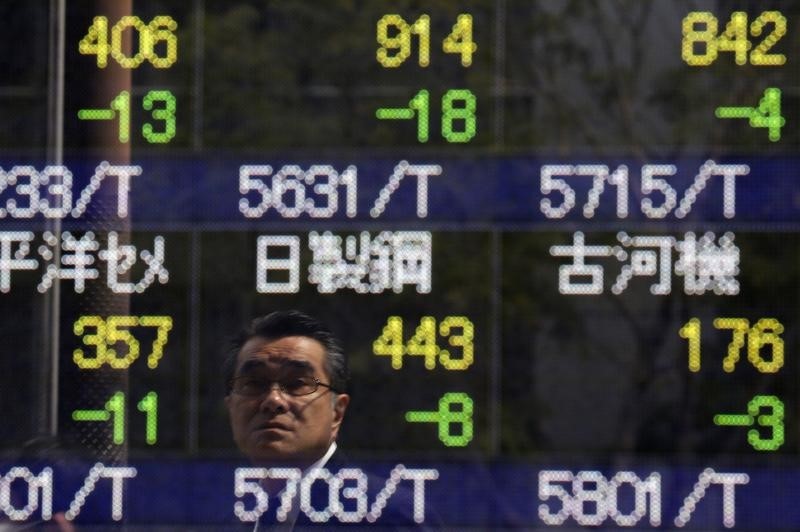By Gina Lee
Investing.com – Asia Pacific stocks were down Friday, ending the week on a downward trend as jitters over the results of the U.S. presidential election and persistent fears over the global economic recovery from COVID-19.
Japan’s Nikkei 225 fell 0.64% by 11:32 PM ET (3:32 AM GMT) and South Korea’s KOSPI slid 1.10%.
In Australia, the ASX 200 was down 0.22%. Data released earlier in the day showed that the third quarter Producer Price Index (PPI) grew 0.4% quarter on quarter, better than the previous month’s 1.2% contraction. The PPI remained unchanged year-on-year, contracting 0.4%.
Hong Kong’s Hang Seng Index edged down 0.17%.
China’s Shanghai Composite inched down 0.10% and the Shenzhen Component fell 0.60%. The Chinese Communist Party wrapped up a plenum to draw up economic plans for the country over the next five and fifteen years. The country is expected to release data, including October's manufacturing and non-manufacturing Purchasing Managers Index (PMI), on Saturday.
Global shares are set to see their worst weekly decline since June, with the election on Nov. 3 only a few days away. Democrat Joe Biden maintains a comfortable lead over incumbent president Donald Trump, but uncertainty over the outcome remains as Americans cast their votes.
“There is going to be more volatility ahead of the election … over the weekend folks are going to be focused on Pennsylvania to see whether or not Biden is gaining there. The concern is if he gains a little bit, that may be one where you could actually look to a contested election,” Prudential Financial Inc (NYSE:PRU). chief market strategist Quincy Krosby told Bloomberg.
Congress’ failure to pass the latest stimulus measures ahead of the election also dampening investor sentiment.
On the COVID-19 front, fresh lockdowns in France and Germany to combat a second wave of COVID-19 cases in Europe are set to begin on Friday and Monday respectively. The European Central Bank also handed down its monetary policy on Thursday, which included a commitment to further action in December to help European Union countries through the second wave.
The commitments widely expected by investors in December include an expansion and extension of the ECB Pandemic Emergency Purchase Program, a lower deposit facility rate, and even more generous lending terms for banks.
The U.S. is also dealing with record number of cases in 47 out of 50 states, including Midwest states such as Kansas, Iowa and South Dakota, as well as New York.
However, some investors remained optimistic despite the trend.
“For a crisis of this scale, Asian equities have performed remarkably well. Within the region, markets with a higher weighting of technology stocks or where the recovery has become more entrenched have outperformed,” Citi analysts wrote in a note.
“This solid performance can continue, in our view. Valuations are reasonable for an early stage of a recovery while liquidity is generous. There has also been a perceptible drop in volatility in recent months,” the note added.
